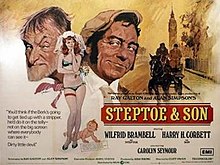
Steptoe and Son is a British sitcom written by Ray Galton and Alan Simpson about a father-and-son rag-and-bone business in 26a Oil Drum Lane, a fictional street in Shepherd's Bush, London. Four series were broadcast by the BBC in black and white from 1962 to 1965, followed by a second run from 1970 to 1974 in colour. The lead roles were played by Wilfrid Brambell and Harry H. Corbett. The theme tune, "Old Ned", was composed by Ron Grainer. The series was voted 15th in a 2004 poll by the BBC to find Britain's Best Sitcom. It was remade in the United States as Sanford and Son, in Sweden as Albert & Herbert, in the Netherlands as Stiefbeen en zoon, in Portugal as Camilo & Filho, and in South Africa as Snetherswaite and Son. Two film adaptations of the series were released in cinemas, Steptoe and Son (1972) and Steptoe and Son Ride Again (1973).

Galton and Simpson were a British comedy scriptwriting duo, who wrote for radio, television and film, consisting of Ray Galton OBE and Alan Simpson OBE. They are best known for their work with comedian Tony Hancock on radio and television between 1954 and 1961 and their long-running television situation comedy, Steptoe and Son, eight series of which were aired between 1962 and 1974, they had an association lasting 60 years.

Raymond Percy Galton was an English radio and television scriptwriter, best known for the Galton and Simpson comedy writing partnership with Alan Simpson. Together they devised and wrote 1950s and 60s BBC sitcoms including Hancock's Half Hour (1954–1961), the first two series of Comedy Playhouse (1961–1963), and Steptoe and Son (1962–1974).

Henry Wilfrid Brambell was an Irish television and film actor, best remembered for playing the grubby rag-and-bone man Albert Steptoe alongside Harry H. Corbett in the long-running BBC television sitcom Steptoe and Son. He achieved international recognition in 1964 for his appearance alongside the Beatles in A Hard Day's Night, playing the fictional grandfather of Paul McCartney.
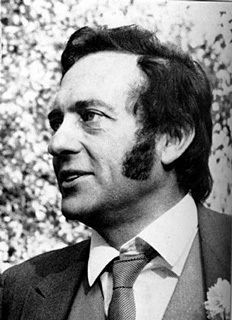
Harry H. Corbett was an English actor and comedian, best remembered for playing rag-and-bone man Harold Steptoe alongside Wilfrid Brambell in the long-running BBC television sitcom Steptoe and Son. His success on television led to appearances in comedy films including The Bargee (1964), Carry On Screaming! (1966) and Jabberwocky (1977).
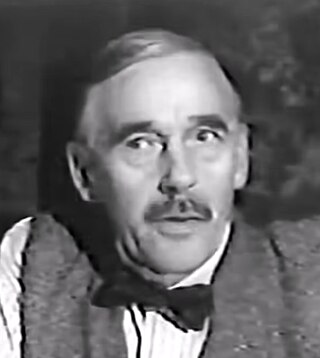
James Gerard Devlin was a Northern Irish actor who made his stage debut in 1931, and had long association with the Ulster Group Theatre. In a career spanning nearly sixty years, he played parts in TV productions such as Z-Cars, Dad's Army, The New Avengers and Bread. He also guest starred, alongside Leonard Rossiter, in an episode of Steptoe and Son, "The Desperate Hours". The writers of Steptoe and Son – Ray Galton and Alan Simpson – later said Devlin was second choice to play the part of Albert Steptoe in the series, behind Wilfrid Brambell. He also appeared as Father Dooley, a Catholic priest, in several episodes of Carla Lane's Bread, his last television appearance.
Carolyn Seymour is an English actress, best known for portraying the role of Abby Grant in the BBC series Survivors (1975) and Queen Myrrah in the Gears of War franchise.

The Magnificent Seven Deadly Sins is a 1971 British sketch comedy film directed and produced by Graham Stark. Its title is a conflation of The Magnificent Seven and the seven deadly sins. It comprises a sequence of seven sketches, each representing a sin and written by an array of British comedy-writing talent, including Graham Chapman, Spike Milligan, Barry Cryer and Galton and Simpson. The sketches are linked by animation sequences overseen by Bob Godfrey's animation studio. The music score is by British jazz musician Roy Budd, cinematography by Harvey Harrison and editing by Rod Nelson-Keys and Roy Piper. It was produced by Tigon Pictures and distributed in the U.K. by Tigon Film Distributors Ltd.

Alan Francis Simpson was an English scriptwriter, best known for the Galton and Simpson comedy writing partnership with Ray Galton. Together they devised and wrote the BBC sitcom Hancock's Half Hour (1954–1961), the first two series of Comedy Playhouse (1961–1963), and Steptoe and Son (1962–1974).
Sheila Frances Steafel was a British actress, who was born in Johannesburg, but lived all her adult life in the United Kingdom.

Steptoe and Son in Murder at Oil Drum Lane is a play written by Ray Galton and John Antrobus that brought the Steptoe and Son saga to an end. It was first performed in 2005.
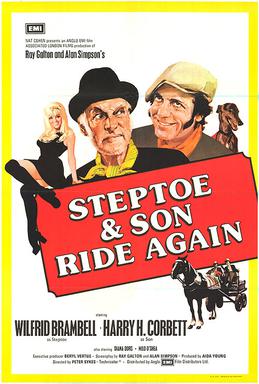
Steptoe and Son Ride Again is a 1973 British comedy drama film directed by Peter Sykes and starring Wilfrid Brambell and Harry H. Corbett. It was written by Ray Galton and Alan Simpson.

Up the Chastity Belt is a 1971 British comedy film directed by Bob Kellett and starring Frankie Howerd. It was written by Sid Colin, Ray Galton and Alan Simpson.
Beryl Frances Vertue was an English television producer, media executive, and agent. She was founder and chairman of the independent television production company Hartswood Films.
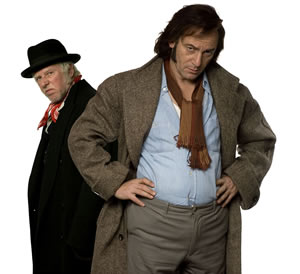
The Curse of Steptoe is a television play which was first broadcast on 19 March 2008 on BBC Four as part of a season of dramas about television personalities. It stars Jason Isaacs as Harry H. Corbett and Phil Davis as Wilfrid Brambell. The drama centres on the actors' on- and off-screen relationship during the making of the BBC sitcom Steptoe and Son, and is based on interviews with colleagues, friends and family of the actors, and the Steptoe writers, Ray Galton and Alan Simpson.
When Steptoe Met Son is a 2002 Channel 4 documentary about the personal lives of Wilfrid Brambell and Harry H. Corbett, the stars of the long-running BBC situation comedy, Steptoe and Son. It aired on 20 August 2002.

Loot is a 1970 British comedy film directed by Silvio Narizzano starring Richard Attenborough, Lee Remick, Hywel Bennett, Milo O'Shea and Roy Holder. It is based on the play of the same name by Joe Orton. It was entered into the 1971 Cannes Film Festival.
Thomas James Harman Sloan was a British television executive. He was the BBC's Head of Light Entertainment in the 1960s.
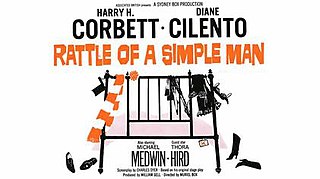
Rattle of a Simple Man is a 1964 British comedy-drama film directed by Muriel Box and starring Diane Cilento, Harry H. Corbett and Michael Medwin, based on the 1963 play by Charles Dyer. A naive man who becomes involved with a prostitute.
